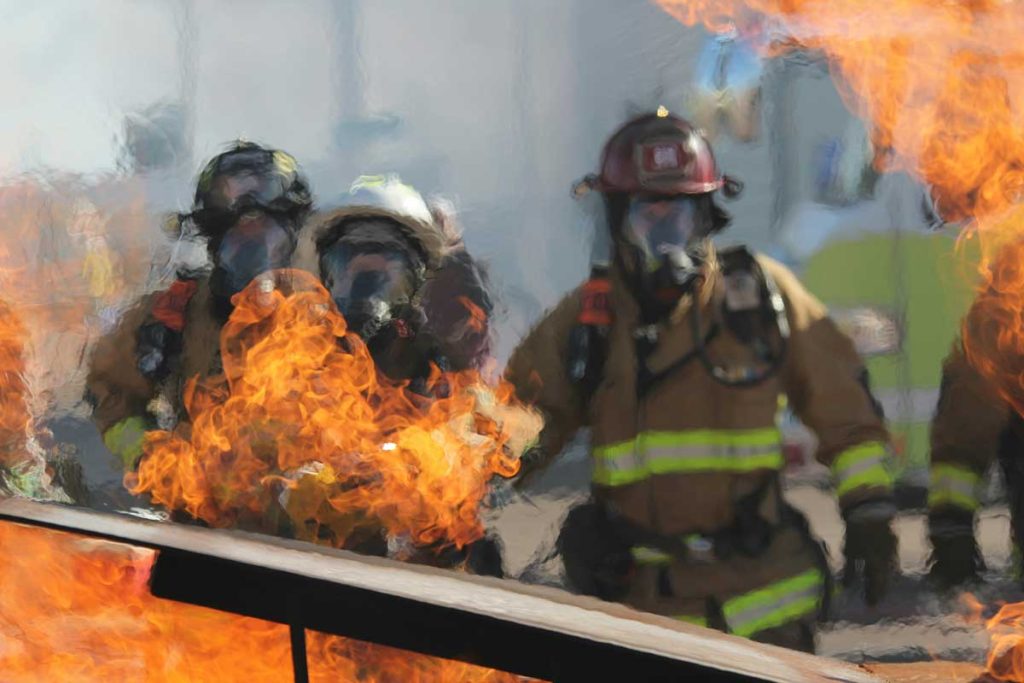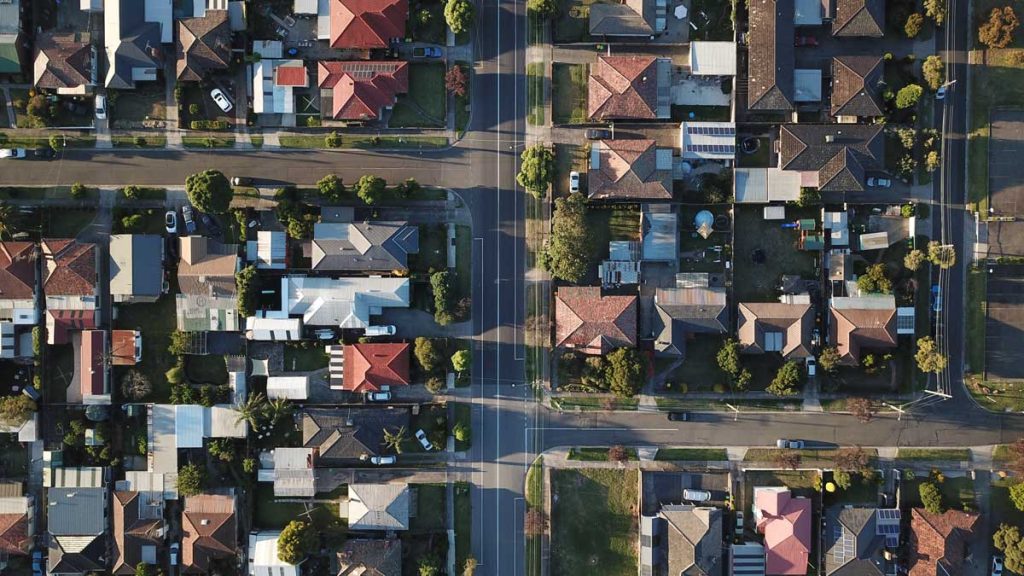By now we’ve all seen the news of recent bushfires plaguing Australia.
Thousands of people have been evacuated, homes and businesses have been destroyed and most devastatingly people have lost their lives.
The kicker: it’s only the start of bushfire season.
Hot, dry weather brought by an El Nino weather event to a country already facing the dramatic effects of climate change has created the perfect conditions for a prolonged bushfire season.
With months of forecasted hot weather and below average rainfall ahead, a destructive fire season is imminent.
While there are many things out of our control, there are steps you can take now to protect yourself and your family as well as your home, business, and assets in the event of a bushfire.
After all, a well-prepared home is more likely to survive a bushfire.
Here are 5 things you can do to prepare for bushfire season:

1. Prepare a Bushfire Plan
Assessing your risk to bushfires is essential and creating a plan is the first step to being prepared and minimising risk.
Firstly, it is important to speak to the members of your household/business and decide on your best course of action in the event of a bushfire.
This includes deciding on evacuation routes from the property, establishing a meeting place and organising a communication plan. It may also help to practice an evacuation drill, as not everyone remains calm in a crisis.
Secondly, create a back-up plan. As quick as the wind direction can change, the severity, location and danger of a bushfire can too, and plans can fail.
A back-up plan that includes alternative routes may save your life. Worst case scenario, make sure you have supplies in the event you have to shelter in place.
2. Prepare an Emergency Kit
Whether you decide to evacuate early or stay and defend your property, in the event of a bushfire it is essential to have an emergency kit prepared. Your emergency kit should be ready prior to bushfire season and should be kept in an easy to access spot that everyone knows.
Your Emergency Kit should include:
- Supplies to last at least five days, including for pets (food, drinking water, medications, etc).
- Important documents e.g. birth certificates, passports, insurance documents
- Valuable items (photos, jewellery, medals, etc).
- First aid and trauma kit.
- A list of emergency contact numbers
- Candles and waterproof matches
- Portable battery-operated radio and waterproof torch with spare batteries
- Mobile phone and charger
- Smoke and particle masks.
- Non-flammable blankets.
- Bushfire protective clothing (heavy duty non-flammable coats, gloves, pants, shoes).
3. Prepare Your Property
A well-prepared property is easier to defend in the event of a bushfire and reduces the risk to neighbours and surrounding properties. Things to do to prepare a property for bushfire season include:
- Trim trees and shrubs around the property and remove any build-up of flammable ground fuel
- Keep the lawn short and remove grass cuttings
- Clear leaf litter and debris from gutters regularly
- Remove flammable materials from the property
- Make sure garden hoses are long enough to reach all parts of the property
- Establish a reliable water source
- Make sure to seal all external gaps to block areas where embers can enter a building
- Position gas cylinders away from gardens and trees and direct any pressure valves away from the building
- Obey Fire Bans
Don’t forget to reach out to local fire services for specific guidelines on how to best protect your property during bushfire season.
For Further Resources See Below:
Queensland Fire and Emergency Services: Prepare for Bushfire Season
NSW Rural Fire Service: Bushfire Survival Plan
Department of Fire and Emergency Services: Bushire Prepare

4. Prepare Your Insurance
Buying a property can be the biggest purchase of most people’s lives, so protecting your assets is essential. Making sure you have Insurance (and for business owners, Business Insurance) in place is the first step to protecting your biggest asset with the right insurance. Secondly it is important that the cover provided by your chosen insurance policy is sufficient for your needs. Make sure to check that your policy provides cover for bushfires, smoke damage and discuss if cover is provided for temporary accommodation following a large event or in the case of a commercial property, replacement income or a limit to allow you to get back up and running as soon as possible.
You will need check your sums insured to ensure that the insured are enough to cover the replacement of your property in the event of a total loss. With recent inflation and increased costs to supplies in the construction industry, a sum that may have once re-built your home may no longer be sufficient.
To check your home or landlord building sum insured is correct, click here to complete the Cordell Building Sum Insured Calculator.
To check your commercial building sum insured is correct for your commercial property, please speak to one of our Brokers at Crucial Insurance and Risk Advisors.
It also important to note that when catastrophe events strike, like bushfires, the demand for trades and building supplies dramatically increases, raising the cost for these services and supplies. So, while you may have insured your building for the correct value under normal circumstances, the cost to repair or replace your building during a catastrophe event may increase.
At Crucial Insurance and Risk Advisors, the Home and Contents Policies offered by our brokers include cover for a range of major weather events including bushfires. We also have access to policies that include a Building Sum Insured Safety Net Benefit, which allows you to access a 30% sum insured top up if the cost to repair or replace your Buildings at claim time is greater than your Buildings sum insured following a catastrophe event.
To find out more about the importance of nominating correct Sums Insured please read: Are you Correctly Insured? How the Current Economic Environment May Mean You Aren’t.
See also: Business Interruption Insurance

5. Prepare for Embargoes and Policy Exclusions
As we’ve established, insurance is imperative to protecting your assets and providing peace of mind during bushfire season. However, it is also important to be aware that insurers do put Embargoes in place for regions under heightened threat. An insurance embargo is a restriction placed on certain geographic regions or for specific risks, which prevents people from purchasing an insurance policy.
In addition to Embargoes, most insurers will also include an exclusion within their policy wording which excludes cover for any destruction, loss or damage to your property if it is caused by a cyclone, flood, tsumani or bushfire, during the first 72 hours after you first purchase a policy or increase your cover under an existing policy.
Therefore, it is essential to put policies in place or update your current policies now before bushfire threats are heightened in your region to avoid being uninsured or underinsured in the face of catastrophe event with a temporary insurance embargo or policy exclusion.
Talk to us today if you would like more information about how we can help you prepare your insurance for bushfire season.
Always call 000 in an Emergency.
 This article was written by Elisha McMahon,
This article was written by Elisha McMahon,
Account Broker at Crucial Insurance and Risk Advisors.
For further information or comment please email info@crucialinsurance.com.au.
Important Disclaimer – Crucial Insurance and Risk Advisors Pty Ltd ABN 93 166 630 511 . This article provides information rather than financial product or other advice. The content of this article, including any information contained on it, has been prepared without taking into account your objectives, financial situation or needs. You should consider the appropriateness of the information, taking these matters into account, before you act on any information. In particular, you should review the product disclosure statement for any product that the information relates to it before acquiring the product.
Information is current as at the date articles are written as specified within them but is subject to change. Crucial Insurance, its subsidiaries and its associates make no representation as to the accuracy or completeness of the information. All information is subject to copyright and may not be reproduced without the prior written consent of Crucial Insurance.
